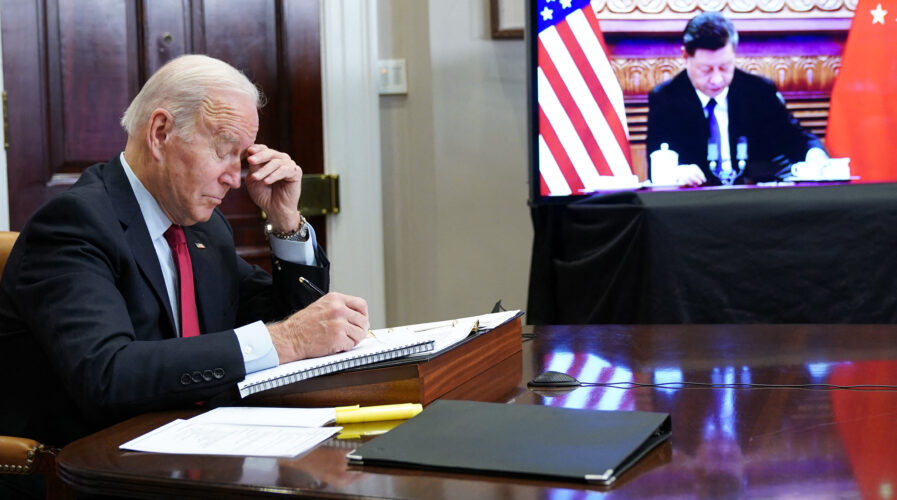
China tightens the screws on foreign IPOs. (Photo by MANDEL NGAN / AFP)
China to tighten screws on all foreign IPOs
- Chinese companies that plan to list overseas would have to register with the China Securities Regulatory Commission.
- Companies with activities that evoke cybersecurity concerns would have to go through security reviews.
- Firms involved in major disputes in China over assets or core technology will also be banned from overseas IPOs.
China is not slowing down its crackdown on Big Tech — if anything, it keeps widening.
After recent back and forth over regulatory loopholes, the country’s internet watchdog finally unveiled draft rules to regulate how domestic firms can list overseas.
The move by the Cyberspace Administration of China (CAC) is seen as a step to govern companies in China applying for overseas IPOs “without complete restriction.”
The draft rule, released over the weekend, is basically an upgraded regulatory framework based on the overseas listing rule drawn up in 1994.
The changes were triggered mainly by the New York IPO by ride-hailing giant Didi Global Inc., which went ahead to list, in defiance of Beijing’s orders to halt.
Following that, authorities have moved to halt the flood of firms seeking to go public in the US over the last six months.
The China Securities Regulatory Commission (CSRC), however, emphasized that the draft rules aren’t meant to tighten policies for overseas listings.
According to Beijing, these rules are to ensure companies comply with domestic laws governing foreign investment, cybersecurity, and data security.
Laws Chinese companies have to comply with before foreign IPOs
For starters, businesses holding information of over a million users in China must undergo a regulatory review after applying for an overseas IPO.
Given the countless internet platforms in China that have stored information of over 10 million or even 100 million users, this means almost all platforms operating in China that aspire to sell shares abroad need to go through a cybersecurity review.
Additionally, firms whose overseas listings could threaten national security will be barred from listing abroad.
Details of what Beijing deems as a “threat to national security”, however, vary widely and are detailed in various domestic laws, including the new data security law.
To top it off, companies whose activities raise cybersecurity concerns would have to go through security reviews.
“Improving the oversight of firms listing abroad comes against the backdrop of opening capital markets, and the regulations are to facilitate more healthy, sustainable and longer-term development,” the CSRC said, according to Bloomberg.
Firms involved in major domestic disputes over assets or core technology will also have their IPOs banned, added the regulator.
The CSRC would also require firms in certain sectors to obtain approval from industry watchdogs before registering with the securities regulator — “The direction of opening up remains intact,” CSRC added.
Debunking rumors, CSRC also noted that companies in China using the so-called variable interest entities (VIE) structure would still be allowed to pursue IPOs overseas after meeting compliance requirements.
The VIE structure has been used since the early 2000s by virtually every Chinese internet company to get around China’s tight restrictions on foreign investments in domestic businesses.
Overall, the rules are applicable to those companies that are seeking to sell shares abroad and will be also applied to those seeking secondary listings, backdoor listings, or listings via special-purpose acquisition companies.
For those that have already been listed overseas, there will be a grace period of an unspecified duration to comply with local regulations, the CSRC said.
The new rules also raise the cost of violations in the wake of Didi’s delisting. Companies that don’t comply with registration rules could face fines of up to 10 million yuan (US$1.57 million), or face a suspension of the business and/or license.
Currently, regulators are seeking public consultation on the draft rules until January 23, 2021.
READ MORE
- Micron Technology invests RM1 Million for semiconductor research at Malaysian universities
- Shein, Shopee and Meesho overtake Amazon in 2021
- Data security is an expectation for APAC consumers
- Malware exploits Microsoft’s e-Signature verification
- What’s spooking Tencent and making them sell their shares off?


